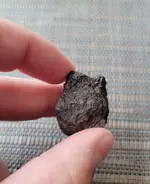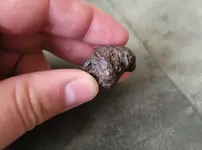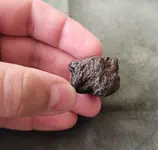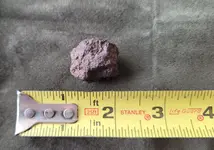Mr.Waffles
Full Member
- Joined
- Mar 27, 2015
- Messages
- 127
- Reaction score
- 193
- Golden Thread
- 0
- Location
- South West
- Primary Interest:
- Relic Hunting
- #1
Thread Owner
Hey everyone,
Hoping ya'll can help me understand the difference between a meteorite and natural iron. I doubt that I'm lucky enough to have found an actual meteorite but how does one tell without being able to cut it in half to look at the internal structure?
I've attached images of a "rock" that I found in Arizona. The rock I have feels heavy, about 26 grams and only 1" in diameter. It IS magnetic and you can see red-ish color speckling the surface that I suspect is rust. Unfortunately I don't recall where exactly the rock was found but most likely in the mountains.
I've found many photos online of supposed meteors and I've always wondered to myself if they really are from outer space or just a natural occurring stone.
Thanks,
Mr. Waffles
Hoping ya'll can help me understand the difference between a meteorite and natural iron. I doubt that I'm lucky enough to have found an actual meteorite but how does one tell without being able to cut it in half to look at the internal structure?
I've attached images of a "rock" that I found in Arizona. The rock I have feels heavy, about 26 grams and only 1" in diameter. It IS magnetic and you can see red-ish color speckling the surface that I suspect is rust. Unfortunately I don't recall where exactly the rock was found but most likely in the mountains.
I've found many photos online of supposed meteors and I've always wondered to myself if they really are from outer space or just a natural occurring stone.
Thanks,
Mr. Waffles












